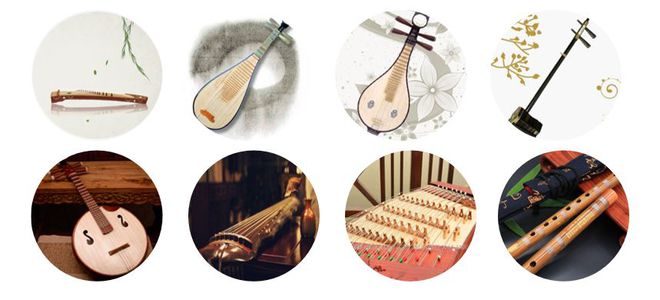How to maintain musical instruments in wet weather Daily maintenance of pipa, guzheng, erhu and dulcimer
In the past week, Rainwater made a stunning appearance, and Huinantian made an appearance. The weather seems to have become a little bully, making us suffer from the fear of being dominated by Huinantian. Not only did the house become a water curtain hole, but it felt like mushrooms could grow on the head. When returning to Nantian, in addition to the moisture-proof work at home, you must also do a good job in maintaining the musical instruments.
Musical instruments, especially wooden instruments, such as pipa, guzheng, erhu, etc., are prone to cracking and cracking when exposed to moisture, and even directly affect the timbre of the qin. So, in wet weather, how do we take care of our instruments?

1. Many players are accustomed to using steel strings, which will leave rust spots on the strings after they are wet, and the sound will be greatly affected. If it is not replaced in time and then continue to use, it will cause great damage to the piano. Therefore, we need to develop the habit of wiping the strings after practice, check carefully, and replace the strings in time if rust spots are found.
2. After practicing the piano, it is necessary to carry out maintenance and care in time. In rainy and humid weather, wooden musical instruments are easy to absorb moisture in the air and expand with moisture. Then, after practicing the piano, we can put the instrument into the piano cover or the piano box, and then place the piano box in a dry place that is not easily bumped. If the ambient humidity is too high, it can be dehumidified by a dehumidifier or an air conditioner. .
For wind instruments, pay attention to wipe off the water vapor with a cotton wool after use, hang it up, and place it in a dry and cool place to air dry naturally to avoid problems such as mold, odor, and paint peeling.
Larger instruments, such as dulcimer, need to be covered with a cover after each performance to prevent moisture.
3. Pay attention to the moisture-proof and mildew-proof work of musical instruments. In daily life, avoid placing the instrument in places with heavy humidity, such as the bathroom, kitchen, fish tank, in front of windows, etc. If you see water vapor on the back of the instrument, wipe it off with a dry cotton cloth in time.
In humid weather, the musical instrument may become damp and moldy. Take the pipa as an example. Its frets and hands are prone to mold. If there are small mold spots, it is recommended to wipe the mold spots with a soft-bristled toothbrush, or use a dipstick. Take a small amount of alcohol and wipe gently with an alcohol cotton pad. If the mildew has become a spot, it is recommended not to deal with it by yourself, but to a professional after-sales service department for treatment.
4. Daily maintenance of musical instruments. When the instrument is not played, the piano box will also accumulate moisture. It is necessary to remove the piano box regularly, dry it, and properly ventilate it in sunny days after the rain. The moisture in the air can also be extracted through the dehumidification function of the air conditioner or dehumidifier. , and maintain the humidity between 30%-60% (different instruments will have slight differences).
For example, the environmental humidity has a great influence on the guzheng. Under normal circumstances, using the guzheng in a space with a relative humidity of 50-70% is beneficial to the vibration and pronunciation of the zheng. Humidity lower than 50% will cause cracking on the surface of the kite body and the bottom plate of the kite. Humidity greater than 70% will easily absorb moisture on the panel, resulting in dull sound, shortened aftertaste, and dull tone.
In addition, the instrument needs to be used frequently so that it is always in a good sounding state, so that the sound quality will be more perfect.
All in all, the violin is raised by people, and it is often used and maintained reasonably, so that the instrument is in a good vibration state, which is conducive to the further reconciliation of the structure of the instrument.
 渝公网安备 50010702504639号
渝公网安备 50010702504639号